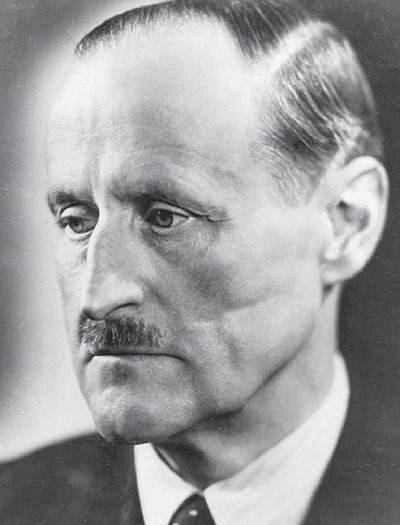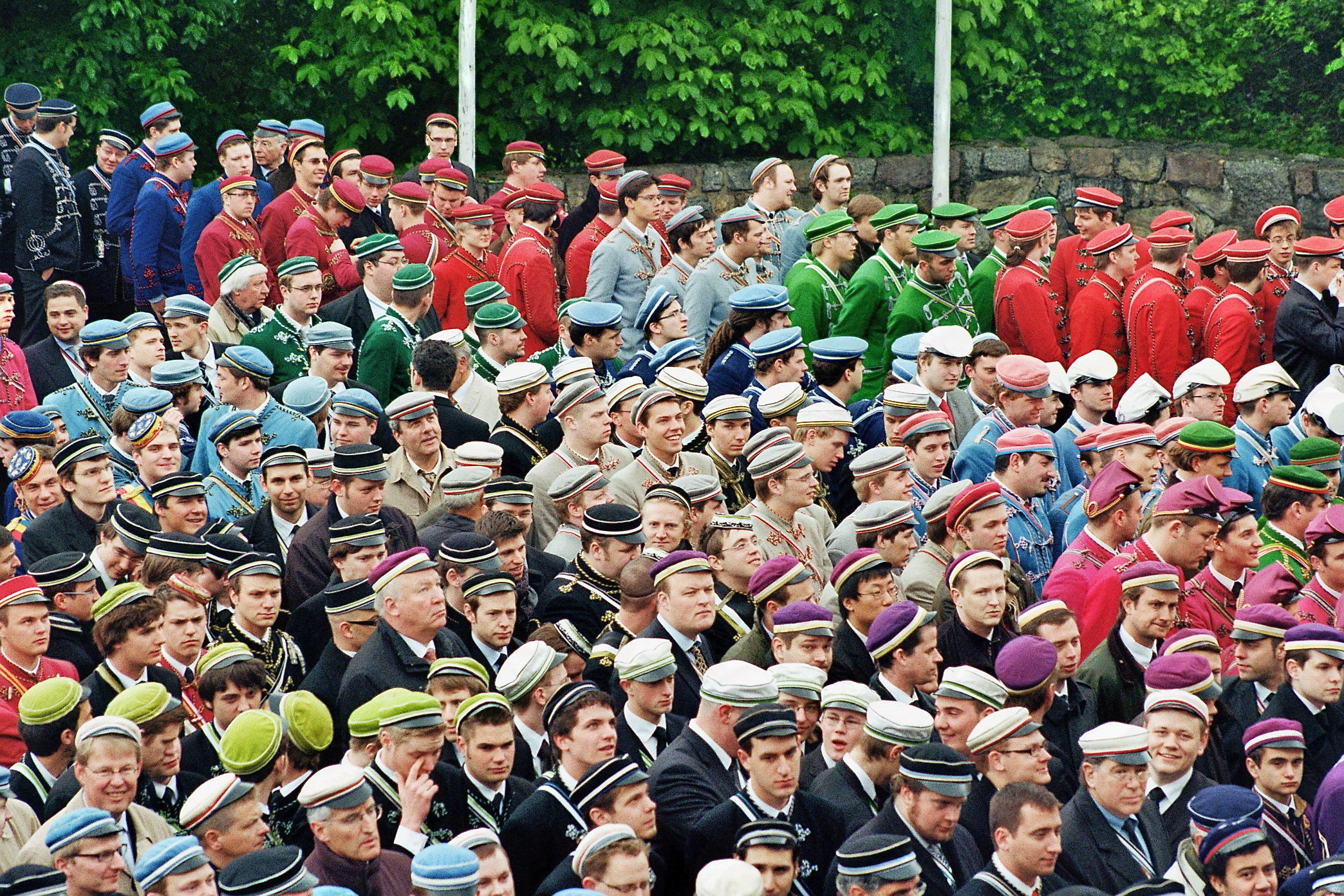|
Ulrich Von Hassell
Christian August Ulrich von Hassell (12 November 1881 – 8 September 1944) was a German diplomat during World War II. A member of the German Resistance against German dictator Adolf Hitler, Hassell unsuccessfully proposed to the British that the resistance would overthrow Hitler if Germany kept all of its territorial conquests. He was executed in the aftermath of the failed 20 July plot. Family Von Hassell was descended from ancient landed nobility, born the son of First Lieutenant Ulrich von Hassell and Margarete (née von Stosch). His mother was a niece of Albrecht von Stosch, the Prussian Minister of State and chief of the Admiralität. She was furthermore the great-granddaughter of Henriette Vogel, whom Heinrich von Kleist had accompanied in November 1811 in suicide. Ulrich von Hassell later did not exclude that his ever-growing admiration for the writer had been increased by that fact. His maternal grandfather was the godson of count August Neidhardt von Gneis ... [...More Info...] [...Related Items...] OR: [Wikipedia] [Google] [Baidu] |
Ulrich Von Hassell
Christian August Ulrich von Hassell (12 November 1881 – 8 September 1944) was a German diplomat during World War II. A member of the German Resistance against German dictator Adolf Hitler, Hassell unsuccessfully proposed to the British that the resistance would overthrow Hitler if Germany kept all of its territorial conquests. He was executed in the aftermath of the failed 20 July plot. Family Von Hassell was descended from ancient landed nobility, born the son of First Lieutenant Ulrich von Hassell and Margarete (née von Stosch). His mother was a niece of Albrecht von Stosch, the Prussian Minister of State and chief of the Admiralität. She was furthermore the great-granddaughter of Henriette Vogel, whom Heinrich von Kleist had accompanied in November 1811 in suicide. Ulrich von Hassell later did not exclude that his ever-growing admiration for the writer had been increased by that fact. His maternal grandfather was the godson of count August Neidhardt von Gneis ... [...More Info...] [...Related Items...] OR: [Wikipedia] [Google] [Baidu] |
Heinrich Von Kleist
Bernd Heinrich Wilhelm von Kleist (18 October 177721 November 1811) was a German poet, dramatist, novelist, short story writer and journalist. His best known works are the theatre plays ''Das Käthchen von Heilbronn'', ''The Broken Jug'', ''Amphitryon'' and ''Penthesilea'', and the novellas ''Michael Kohlhaas'' and '' The Marquise of O.'' Kleist died by suicide together with a close female friend who was terminally ill. The Kleist Prize, a prestigious prize for German literature, is named after him, as was the Kleist Theater in his birthplace Frankfurt an der Oder. Life Kleist was born into the von Kleist family in Frankfurt an der Oder in the Margraviate of Brandenburg, a province of the Kingdom of Prussia. After a scanty education, he entered the Prussian Army in 1792, served in the Rhine campaign of 1796, and retired from the service in 1799 with the rank of lieutenant. He studied law and philosophy at the Viadrina University, and in 1800, received a subordinate post in the ... [...More Info...] [...Related Items...] OR: [Wikipedia] [Google] [Baidu] |
Studentenverbindung
(; often referred to as Verbindung) is the umbrella term for many different kinds of fraternity-type associations in German-speaking countries, including Corps, , , , and Catholic fraternities. Worldwide, there are over 1,600 , about a thousand in Germany, with a total of over 190,000 members. In them, students spend their university years in an organized community, whose members stay connected even after graduation. A goal of this lifelong bond () is to create contacts and friendships over many generations and to facilitate networking. The is very important for the longevity of these networks. Their autonomous and grassroots democratic is also an important similarity of all student corporations. Apart from the and the , every Studentenverbindung also has a so-called (borrowed French for 'how'). The is a body of rules that organize various different aspects of fraternity life such as the , academic fencing (), and general rules of conduct. Fraternities of this particula ... [...More Info...] [...Related Items...] OR: [Wikipedia] [Google] [Baidu] |
University Of Tübingen
The University of Tübingen, officially the Eberhard Karl University of Tübingen (german: Eberhard Karls Universität Tübingen; la, Universitas Eberhardina Carolina), is a public research university located in the city of Tübingen, Baden-Württemberg, Germany. The University of Tübingen is one of eleven German Excellence Universities. The University of Tübingen is especially known as a centre for the study of plant biology, medicine, law, archeology, ancient cultures, philosophy, theology, and religious studies as well as more recently as center of excellence for artificial intelligence. The university's noted alumni include presidents, EU Commissioners, and judges of the Federal Constitutional Court. The university is associated with eleven Nobel laureates, especially in the fields of medicine and chemistry. History The University of Tübingen was founded in 1477 by Count Eberhard V (Eberhard im Bart, 1445–1496), later the first Duke of Württemberg, a civic and ... [...More Info...] [...Related Items...] OR: [Wikipedia] [Google] [Baidu] |
University Of Lausanne
The University of Lausanne (UNIL; french: links=no, Université de Lausanne) in Lausanne, Switzerland was founded in 1537 as a school of Protestant theology, before being made a university in 1890. The university is the second oldest in Switzerland, and one of the oldest universities in the world to be in continuous operation. As of fall 2017, about 15,000 students and 3,300 employees studied and worked at the university. Approximately 1,500 international students attend the university (120 nationalities), which has a wide curriculum including exchange programs with other universities. Since 2005, the university follows the requirements of the Bologna process. The 2011 Times Higher Education World University Rankings ranked the University of Lausanne 116th globally. The CWTS Leiden Ranking 2015 ranks the University of Lausanne 11th in Europe and 41st globally, out of 750 universities. Together with the École polytechnique fédérale de Lausanne (EPFL) the university forms a ... [...More Info...] [...Related Items...] OR: [Wikipedia] [Google] [Baidu] |
Economics
Economics () is the social science that studies the Production (economics), production, distribution (economics), distribution, and Consumption (economics), consumption of goods and services. Economics focuses on the behaviour and interactions of Agent (economics), economic agents and how economy, economies work. Microeconomics analyzes what's viewed as basic elements in the economy, including individual agents and market (economics), markets, their interactions, and the outcomes of interactions. Individual agents may include, for example, households, firms, buyers, and sellers. Macroeconomics analyzes the economy as a system where production, consumption, saving, and investment interact, and factors affecting it: employment of the resources of labour, capital, and land, currency inflation, economic growth, and public policies that have impact on glossary of economics, these elements. Other broad distinctions within economics include those between positive economics, desc ... [...More Info...] [...Related Items...] OR: [Wikipedia] [Google] [Baidu] |
Gymnasium (school)
''Gymnasium'' (and variations of the word) is a term in various European languages for a secondary school that prepares students for higher education at a university. It is comparable to the US English term '' preparatory high school''. Before the 20th century, the gymnasium system was a widespread feature of educational systems throughout many European countries. The word (), from Greek () 'naked' or 'nude', was first used in Ancient Greece, in the sense of a place for both physical and intellectual education of young men. The latter meaning of a place of intellectual education persisted in many European languages (including Albanian, Bulgarian, Estonian, Greek, German, Hungarian, the Scandinavian languages, Dutch, Polish, Czech, Serbo-Croatian, Macedonian, Slovak, Slovenian and Russian), whereas in other languages, like English (''gymnasium'', ''gym'') and Spanish (''gimnasio''), the former meaning of a place for physical education was retained. School structure Be ... [...More Info...] [...Related Items...] OR: [Wikipedia] [Google] [Baidu] |
Abitur
''Abitur'' (), often shortened colloquially to ''Abi'', is a qualification granted at the end of secondary education in Germany. It is conferred on students who pass their final exams at the end of ISCED 3, usually after twelve or thirteen years of schooling (see also, for Germany, ''Abitur'' after twelve years). In German, the term has roots in the archaic word , which in turn was derived from the Latin (future active participle of , thus "someone who is going to leave"). As a matriculation examination, ''Abitur'' can be compared to A levels, the ''Matura'' or the International Baccalaureate Diploma, which are all ranked as level 4 in the European Qualifications Framework. In Germany Overview The ("certificate of general qualification for university entrance"), often referred to as ("''Abitur'' certificate"), issued after candidates have passed their final exams and have had appropriate grades in both the last and second last school year, is the document which contains t ... [...More Info...] [...Related Items...] OR: [Wikipedia] [Google] [Baidu] |
Province Of Pomerania (1815–1945)
The Province of Pomerania (german: Provinz Pommern; pl, Prowincja Pomorze) was a province of Prussia from 1815 to 1945. Pomerania was established as a province of the Kingdom of Prussia in 1815, an expansion of the older Brandenburg-Prussia province of Pomerania, and then became part of the German Empire in 1871. From 1918, Pomerania was a province of the Free State of Prussia until it was dissolved in 1945 following World War II, and its territory divided between Poland and Allied-occupied Germany. The city of Stettin (present-day Szczecin, Poland) was the provincial capital. Etymology The name ''Pomerania'' comes from Slavic , which means "Land at the Sea". Overview The province was created from the former Prussian Province of Pomerania, which consisted of Farther Pomerania and the southern Western Pomerania, and former Swedish Pomerania. It resembled the territory of the former Duchy of Pomerania, which after the Peace of Westphalia in 1648 had been split between Bra ... [...More Info...] [...Related Items...] OR: [Wikipedia] [Google] [Baidu] |
Anklam
Anklam [], formerly known as Tanglim and Wendenburg, is a town in the Western Pomerania region of Mecklenburg-Vorpommern, Germany. It is situated on the banks of the Peene river, just 8 km from its mouth in the ''Kleines Haff'', the western part of the Stettin Lagoon. Anklam has a population of 12,177 (2021) and was the capital of the former Ostvorpommern district. Since September 2011, it has been part of the district of Vorpommern-Greifswald. History In the early Middle Ages, there was an important Scandinavian and Wendish settlement in the area near the present town now known as Altes Lager Menzlin. Anklam proper began as an associated Wendish fortress. In the Middle Ages the town was a part of the Duchy of Pomerania. During the German expansion eastwards, the abandoned fortress was developed into a settlement named Tanglim after its new founder. The site possesses importance as the head of navigation on the Peene. It was elevated to town status in 1244 and became a m ... [...More Info...] [...Related Items...] OR: [Wikipedia] [Google] [Baidu] |
1994 Austrian European Union Membership Referendum ...
A referendum on European Union membership was held in Austria on 12 June 1994. The question asked was "Shall the National Council's decision of 5 May 1994 on the Constitutional Law (''Bundesverfassungsgesetz'') concerning the Accession of Austria to the European Union be enacted as law?" The result of the vote was 67% in favour, with a turnout of 82%.Nohlen & Stöver, p207 Austria subsequently joined the EU as part of the 1995 enlargement. Party positions Results By state References {{Elections in Austria Referendums in Austria Austria Referendums related to European Union accession Austria and the European Union 1994 in Austria Austria Austria, , bar, Östareich officially the Republic of Austria, is a country in the southern part of Central Europe, lying in the Eastern Alps. It is a federation of nine states, one of which is the capital, Vienna, the most populous ... [...More Info...] [...Related Items...] OR: [Wikipedia] [Google] [Baidu] |


_Heinrich_von_Kleist_1.jpg)



